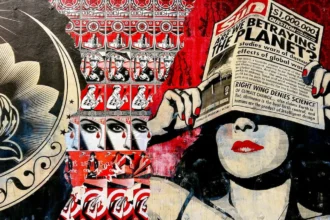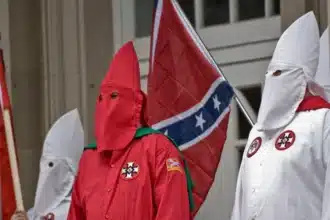The Shadowy World of Agents Provocateurs
In the labyrinth of modern law enforcement tactics, the role of agents provocateurs emerges as a particularly contentious and enigmatic element. These undercover operatives, often embedded within political groups and social movements, are tasked with a covert, and sometimes controversial, mandate. Their primary function, ostensibly, is to identify and prevent criminal activities. However, their presence and actions frequently transcend this boundary, leading to significant legal and ethical dilemmas. This is especially pertinent in the context of the United Kingdom, where recent public inquiries and legislative actions, such as the Covert Human Intelligence Sources (Criminal Conduct) Act, have brought these clandestine operations into the limelight.
The core of this discussion revolves around the delicate balance between state security interests and the sacrosanct right to freedom of expression as enshrined in the European Convention on Human Rights (ECHR). The infiltration by agents provocateurs, often perceived as a tool for manipulating and destabilizing legitimate dissent, poses a direct challenge to this fundamental right.
The potential for these operations to erode democratic values and stifle the essential right to freedom of expression.
This article delves into the intricate interplay of these undercover operations with the broader framework of human rights. It aims to unravel the complexities of this issue, examining the implications of such covert interventions in democratic discourse and the potential infringement on the freedom of expression. Through a detailed exploration of legal precedents, case studies, and theoretical underpinnings, this piece seeks to provide a comprehensive understanding of the role and impact of agents provocateurs within the realm of public expression and political activism.
The Pervasive Use of Agents Provocateurs
The phenomenon of agents provocateurs, largely consisting of undercover officers infiltrating social and political movements, stands as a global issue fraught with controversy and ethical ambiguities. These operatives, often working in the shadows of societal discourse, are tasked with a dual mandate: to observe and report on potential illicit activities within these movements, and, more contentiously, to act as catalysts for action that may otherwise not occur. Their role frequently extends beyond mere observation, leading to accusations of instigating violence, skewing messages, and distorting public perception.
This contentious practice, while prominently featured in the UK’s public discourse, is far from being a uniquely British issue. It resonates across international borders, manifesting in diverse political landscapes and varying legal frameworks. Countries around the world grapple with the complex interplay of maintaining public order and respecting the right to free expression and assembly. The use of agents provocateurs often becomes a fulcrum in this balance, tipping the scales in ways that challenge the foundational principles of democratic societies.
States are obliged to create an environment where such freedom can be exercised without fear of retribution or manipulation.
The ethical considerations are profound and multifaceted. On one hand, the state’s responsibility to ensure public safety and order cannot be understated. However, the methods employed to fulfill this duty, particularly through the use of agents provocateurs, raise critical questions about the infringement of civil liberties and the potential for abuse of power. The infiltration of political groups and social movements by these agents not only threatens the sanctity of legitimate dissent and protest but also risks undermining the trust between the public and law enforcement agencies.
Furthermore, the global prevalence of this tactic underscores a need for an international dialogue on its implications. Variations in legal systems and cultural norms surrounding protest and political activism mean that the impact and perception of agents provocateurs can differ significantly from one country to another. Yet, the underlying concern remains universal: the potential for these operations to erode democratic values and stifle the essential right to freedom of expression.
In conclusion, the pervasive use of agents provocateurs in social and political movements is a matter of considerable legal and moral complexity. It calls for a nuanced understanding of the balance between state security and individual freedoms, a balance that is continually tested by the evolving nature of political activism and law enforcement strategies.
Agents Provocateurs and the ECHR: Legal Perspectives
The intricate relationship between the operations of agents provocateurs and the European Convention on Human Rights (ECHR), particularly regarding freedom of expression, presents a complex legal landscape. While the European Court of Human Rights (ECtHR) has not comprehensively tackled the specific implications of agents provocateurs, existing jurisprudence offers insights into how these practices could potentially infringe upon the fundamental right to free speech.
At the heart of this legal discourse is Article 10 of the ECHR, which guarantees the right to freedom of expression. This right, while not absolute, demands a careful and stringent examination of any state action that might restrict it. The covert nature of agents provocateurs’ operations poses unique challenges in this regard. These challenges lie in distinguishing between legitimate state interests, such as maintaining public order and national security, and the undue suppression of free speech and assembly.
The ECtHR’s approach to cases involving state surveillance and interference with political activities provides a relevant framework for analyzing the role of agents provocateurs. Past rulings have emphasized the necessity of a proportionate and justified response by the state in curtailing rights for the greater public interest. This jurisprudence underscores the importance of scrutinizing the actions of agents provocateurs to ensure they do not overstep the delicate balance between state security and individual freedoms.
Additionally, the concept of “positive obligations” under the ECHR plays a crucial role in this context. States are not only required to refrain from unjustified interference in free speech but are also obliged to create an environment where such freedom can be exercised without fear of retribution or manipulation. The presence of agents provocateurs, particularly when they incite or escalate conflicts, could be seen as a failure of the state to fulfill these positive obligations.
By examining how the ECtHR has addressed similar issues in the past, we gain a deeper understanding of the possible legal implications of these undercover operations and their alignment with the principles enshrined in the ECHR.
Case Studies: From Europe to North America
The use of agents provocateurs transcends geographical boundaries, with notable instances in both Europe and North America illustrating the depth and complexity of this phenomenon. These case studies not only highlight the operational specifics of agents provocateurs but also offer a lens through which the broader implications of their actions on democratic discourse and public debate can be understood.
This article advocates for greater transparency and accountability in the utilization of agents provocateurs.
In Europe, the situation often centers around environmentalist groups, where agents provocateurs have been documented manipulating activities and strategies. These cases raise profound questions about the legitimacy of state intervention in peaceful advocacy movements. For instance, the infiltration of environmental protests often leads to a blurring of lines between lawful surveillance and active disruption of lawful assembly, thereby challenging the very essence of democratic freedoms.
Across the Atlantic, in North America, the use of agents provocateurs has been reported within trade unions and during racial justice protests. These instances provide a different yet equally significant context. Infiltration in trade unions often aims at undermining workers’ rights movements, thereby affecting labor reforms and social justice issues. Similarly, the presence of agents provocateurs in racial justice movements has led to questions about the extent to which state intervention exacerbates tensions and disrupts peaceful demonstrations.
These case studies reflect a pattern of governmental interference that transcends the specific aims of maintaining law and order. They illustrate how the actions of agents provocateurs can significantly influence the trajectory and perception of social and political movements. This interference not only impacts the groups directly involved but also has wider ramifications for the health of public discourse and the functioning of democratic institutions.
In analyzing these cases, it becomes evident that the challenge is not just about the presence of undercover agents, but also about the nature of their interventions and the consequences these have on the freedom of expression and assembly. The patterns observed in these diverse contexts serve as a cautionary tale about the delicate balance between security measures and the preservation of fundamental democratic principles.
Conclusion: The Need for Judicial Oversight and Democratic Integrity
The deployment of agents provocateurs, as examined through various case studies and legal frameworks, presents a formidable challenge to the core values of democracy and the right to free speech. This conclusion underscores the urgent necessity for robust judicial oversight and unwavering commitment to democratic integrity in the face of such covert operations.
Judicial bodies, epitomized by the European Court of Human Rights (ECtHR), play a pivotal role in safeguarding fundamental freedoms against potential state overreach. The ECtHR’s mandate to enforce the European Convention on Human Rights (ECHR) positions it as a critical arbiter in ensuring that State actions, including the use of agents provocateurs, do not violate the sanctity of freedom of expression and assembly. Effective oversight by such judicial entities is essential to ensure that these undercover operations are conducted within the bounds of law and morality, avoiding any infringement on democratic processes and individual liberties.
Furthermore, this article advocates for greater transparency and accountability in the utilization of agents provocateurs. The need for clear guidelines and stringent controls is paramount to prevent abuse of power and to maintain public trust in law enforcement and governance systems. The presence of covert agents within social and political movements should not translate into a disruption of legitimate dissent or a tool for governmental manipulation.
In conclusion, the integrity of democratic discourse and the preservation of fundamental rights hinge on a delicate balance. This balance can only be maintained through vigilant judicial oversight, adherence to legal and ethical standards, and a collective commitment to upholding the principles of democracy. The call for greater scrutiny and accountability in the use of agents provocateurs is not just a legal imperative but a moral one, vital for the sustenance of a healthy, vibrant democracy.
Adapted from an academic article for a wider audience, under license CC BY 4.0









